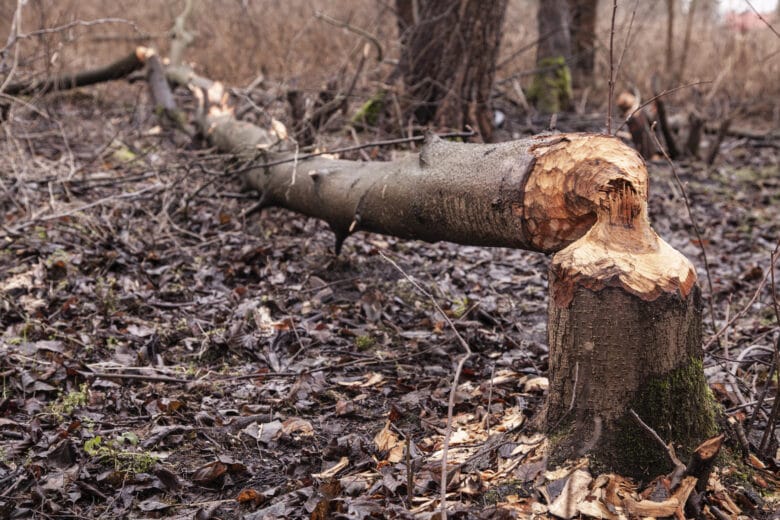
In the north of the Canadian province of British Columbia, a landline, mobile network and Internet outage occurred just under a week ago. In times of increasingly frequent cyberattacks, one always first suspects a hacker group in such cases nowadays. This time, however, the cause seems to be surprisingly cute. For example, a single beaver is said to have been responsible for the June 7 power outage.
Eight-hour Internet outage
In our digital age, an Internet outage has far-reaching implications. After all, in the age of smart homes and Internet connectivity, we use the World Wide Web around the clock on almost every technical device. If the fixed and mobile network failures are then added to this, the annoyance is naturally particularly great. This is what many residents in northwestern British Columbia had to go through. They had to wait a whole eight hours for the technology to work again. Now the responsible officials let announce that a beaver is to have caused the power failure when gnawing through a tree. After the rodent brought down an aspen tree, it crashed into two BC Hydro power lines as well as a Telus fiber optic cable line, according to officials.
While the resulting power outage affected only 21 customers, the damage to the fiber optic cable had more impact. Customers of Canadian telecommunications company Telus living in Burns Lake, Granisle, Haida Gwaii, the Hazeltons, Kitimat, Prince George, Prince Rupert, Smithers, Terrace, Thornhill, Houston, Topley, Telkwa, Fraser Lake and Vanderhoof suffered the Internet outage. CityWest customers also suffered briefly from the outage. Finally, the cable damage also affected the Internet of the utility operating in the city of Prince Rupert. Once again, it is clear what far-reaching effects an Internet outage has these days.
Internet outage with complicated root cause investigation
.
The cause investigation of the local officials is exciting and funny at the same time. So, of course, they were able to quickly determine that it was damage to the cables that caused the outage. In times of increasing cyberattacks, telecommunications companies will probably be happy about such classic damage – sad, but true. The beaver was then quickly identified as the culprit on the basis of the chew marks found. The search for the cause would certainly have taken less time in other regions. After all, it is not without reason that the guilty beaver feels at home in the area of the affected power and fiber optic line. The area where the lines run, for example, is characterized by marshy ground and high water levels.

A beaver may feel very comfortable here, but humans, on the other hand, have a hard time getting to it, even with modern equipment. Accordingly, it was difficult to reach the site in the first place, he said. The head of BC Hydro, Bob Gammer, himself is not too surprised about the incident. After all, he says, it happens from time to time. In terms of its impact, however, the current “beaver incident” is likely to remain unique for the time being. Internally, the company seems to have created its own term for failures caused by beavers: “beaver failure”. If you listen closely to the words of the BC Hydro official, this should not have been the last one either.
No more card payments possible
Just a few weeks ago, it was impossible to pay by EC or credit card in many places in Germany for some time (we reported). Due to a system failure, only traditional cash payments were possible. The outage in British Columbia had very similar consequences. For example, many businesses could only accept cash payments, as the Internet outage also brought their card payment system to its knees. The news portal CTVNews, for example, reported on a gas station operator on Highway 37 that was the only place to fill up within a two-hour drive. He spoke of how many were unable to fill up with him because they didn’t have cash on them. Without further ado, they had to take a chance and try to reach the nearest gas station.
Mobile communications dependent on fiber-optic technology
Of course, this also raises the question of why mobile communications were restricted in the first place, even though there was “only” an Internet outage. After all, this normally has nothing to do with the affected cables. The mayor of Prince Rupert, Lee Brain, has made a comprehensive statement on this. He spoke about the fact that many mobile network providers would rely on fiber optic technology to enable higher bandwidths. Accordingly, they were also affected by the incident. The region of northwestern British Columbia may also have to think about another fiber optic cable.
The mayor further stated that there is only one cable connecting Prince George and Prince Rupert. Since there is still no plan B for outages, incidents like this one have to be accepted. But that is expected to change soon. Another fiber optic line is to be laid, which will not run through the swamp area popular with beavers. Instead, they want to connect the metropolis of Vancouver with the northern region along the coast. This should be the lifeline if another beaver decides to drop a tree on the cables.




No replies yet
Neue Antworten laden...
Gehört zum Inventar
Beteilige dich an der Diskussion in der Basic Tutorials Community →